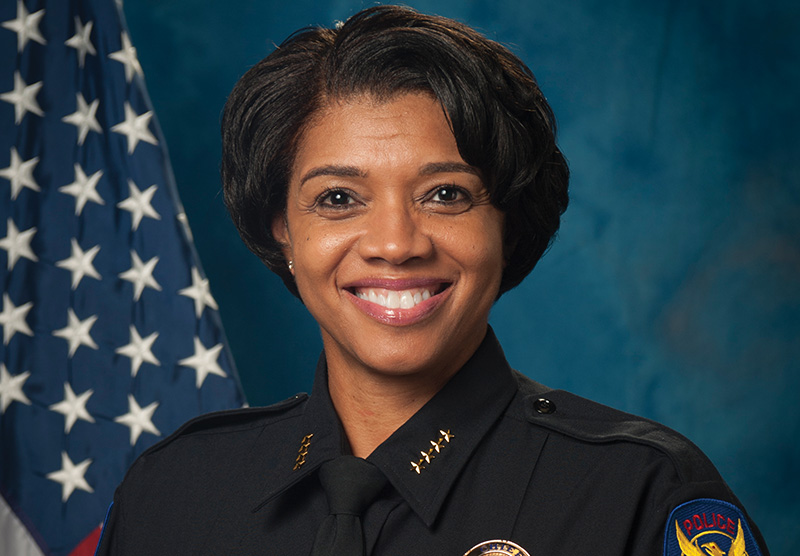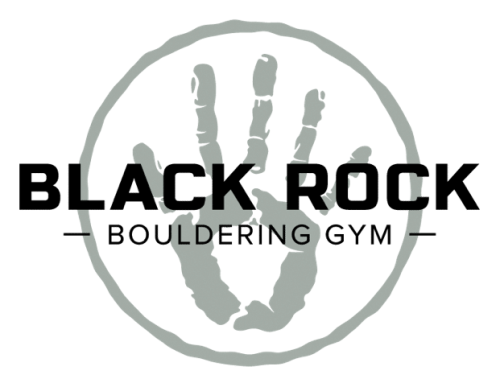By Phoenix Police Chief Jeri Williams
2020 is behind us, marked as one of the most unique years in modern history. The challenges of a global pandemic, rising domestic violence and homicide rates in cities across the country, and social unrest surrounding race, policing, and politics have impacted our country and our community. As the Chief of the Phoenix Police Department, I am confident we completed 2020 a better department. We have implemented substantial changes that improve our ability to meet community expectations to serve, protect, and reduce crime in Phoenix while treating community members with dignity and respect.
Crime Trends
Our department had some 825,000 interactions with the public in 2020. Our Communications Bureau answered more than 2 million calls for service. Thefts, burglaries, and rapes are all down. After a decade of lower murder rates, Phoenix mirrored a national trend, with the number of people killed at the hands of another reaching numbers more like what our city experienced in the early 2000’s. Despite the increase, our Homicide Unit is working hard to find justice for these victims, with a clearance rate nearly 10% higher than the national average.
Early in 2020 when we saw a trend of increasing domestic violence, our department teamed up with other City of Phoenix and community resources along with media partners to launch the Domestic Violence Help! campaign. This multi-pronged approach helped raise awareness and provide resources to potential victims.
COVID-19
COVID-19 impacted many aspects of policing. We initiated an Incident Management Team to address solutions to the pandemic. With a focus on education, officers interacted with the public, sharing important health and safety information regarding the virus. At that same time, we looked for additional ways we could support the community. This included the detailed process of certifying our Crime Lab to provide support for COVID-19 testing. The Phoenix Crime Lab is the only crime lab in the country to provide this community service.
Officer Involved Shooting and Police Reform
Phoenix residents rightfully expect officers to be faithful guardians of public safety and only use force as a last resort. This community expectation was reinforced after the untimely death of George Floyd where Phoenix was one of more than 2,000 cities nationwide with demonstrations calling for police reform. These demonstrations were largely peaceful, and I appreciate the commitment of our Community Engagement Bureau, our Central City Precinct and the many, many officers who assisted.
I was able to speak directly with and hear the concerns of organizers. This led to an evaluation of several of our policies to reflect the high expectation we have of our sworn and civilian employees. These changes include banning neck restraints such as the carotid control technique. The Duty to Intervene policy now makes it clear that we expect all employees to step in and stop what they know to be excessive force by a fellow employee.
Looking Ahead
There is still more to be done, not only within the police department but through a coordinated effort across the community. Nowhere is this more evident than the need for mental and behavior health services. Despite the vital role police play as first responders, we are not always the appropriate response to a 911 call for service. Rethinking who responds to mental health, homelessness and domestic violence calls will strengthen our community.
Internally, we’ve launched a new initiative to build a team of employees focused on the department mission to constantly and continuously improve both as an organization and as individual employees. I organized the Center for Continuous Improvement (CCI) with five key focus areas: operation and policy management, accountability, technology and transparency, messaging and employee wellness and development. This group is laser focused on evaluating best practices so the Phoenix Police Department can always be moving forward.
The CCI will also evaluate recommendations from national organizations such as the National Police Foundation and the U.S. Conference of Mayors. During the nationwide demonstrations calling for police reform, I participated on the U.S. Conference of Mayors Committee on Police Reform and Racial Justice. We came up with multiple recommendations to reimagine policing. Many we already do. Some still need work. These include things like creating a use of force data dashboard, evaluating tactics to ensure we are impartial in our policing, and building up our community policing programs.
Phoenix is a fast-growing city, attracting people who want to live, work and play in a safe environment. I know under the leadership of Mayor Kate Gallego and the Phoenix City Council, 2021 will be a year where the Phoenix Police Department will thrive in our mission to support the safety and security of all residents and visitors.





